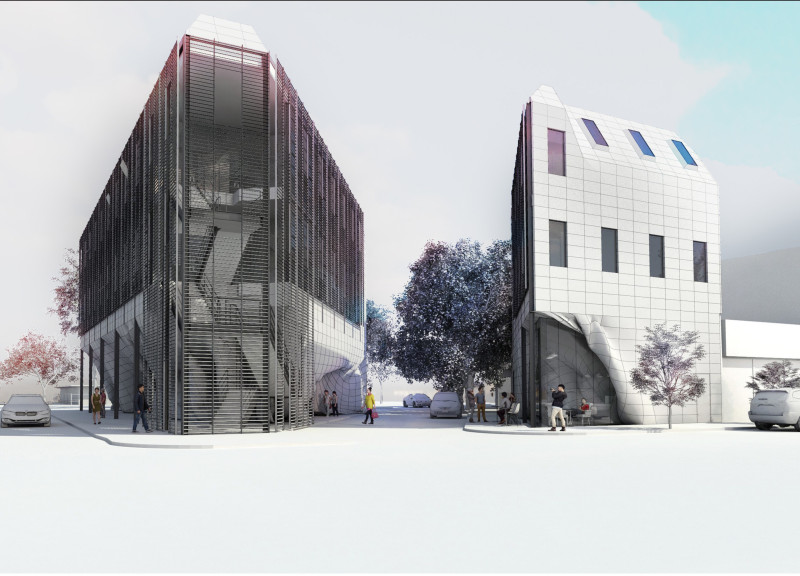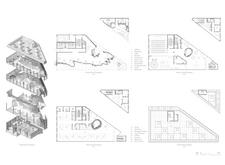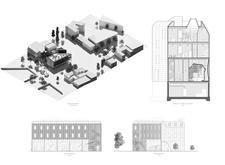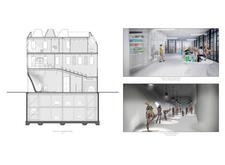5 key facts about this project
### Analytical Report: Melbourne Tattoo Academy Architectural Design Project
#### Overview
Located in Melbourne, Australia, the Melbourne Tattoo Academy is designed as a contemporary educational facility dedicated to the craft of tattooing. The architecture aims to shift perceptions of tattoos from stigmatized artifacts to an appreciated art form. It provides a functional space that fosters creativity, learning, and community engagement, encouraging both practitioners and the public to engage with tattoo culture constructively.
#### Spatial Organization and Function
The layout of the Academy features distinct areas that cater to various aspects of tattoo education and artistry. The ground level includes a Gallery and Café designed to promote community interaction, utilizing expansive glass façades for transparency and inclusivity. Upper floors accommodate specialized studios, classrooms, and workshops, all configured flexibly to support diverse instructional methods. Additionally, an auditorium facilitates larger gatherings and outreach events, while a dedicated Figure Lab emphasizes life drawing as a crucial component of tattoo art. Wellness spaces, including massage therapy rooms, address the physical demands associated with tattooing, contributing to the overall health of artists and students.
#### Material Selection and Sustainability
The material palette reflects a commitment to modern design while emphasizing tactile quality. Glass predominates the façade, maximizing natural light and creating a dialogue between the interior and surrounding environment. Steel forms the structural framework, ensuring durability and aesthetic appeal, complemented by concrete for foundational strength. Timber adds warmth, echoing the artisanal nature of tattooing, while aluminum panels enhance exterior visual interest and support thermal performance. This careful selection promotes not only a contemporary image but also sustainable practices within the Academy’s operational context.
The architectural design thus embodies a narrative of acceptance and innovation, allowing the Melbourne Tattoo Academy to function as both a learning institution and an evolving platform for the art of tattooing.























































